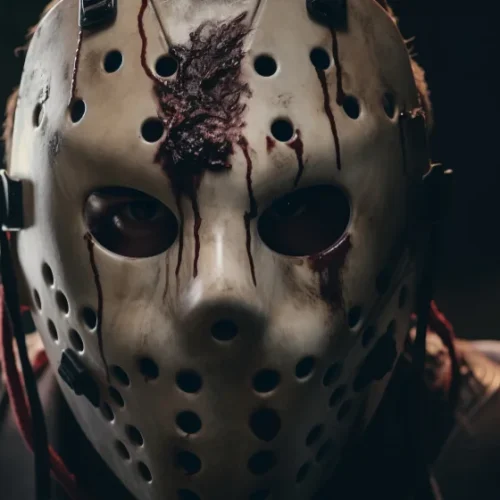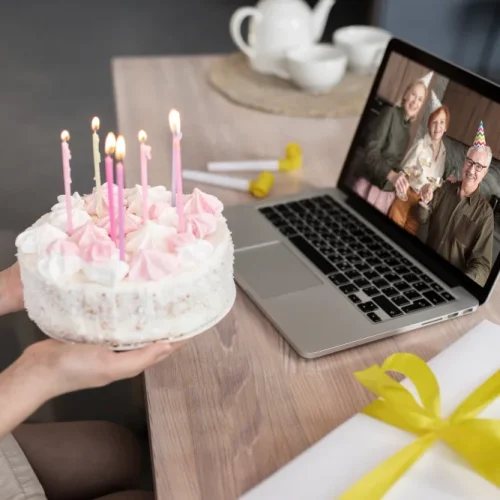Why Do Horror Movies Haunt Us After the Credits Roll?
Have you ever switched off a horror film only to find yourself jumping at every creak in the house, or leaving the lights on because the dark suddenly feels unsafe? If so, you’re not alone. I still remember the first time I watched The Conjuring at a late-night sleepover. While everyone else laughed it off, I couldn’t shake the images from my mind. That night, every shadow seemed alive. But here’s the good news: fear after a horror movie isn’t permanent. In fact, with the right strategies, you can retrain your brain to relax and move on.
Understanding why horror films scare us in the first place is the first step. More importantly, learning how to calm the body and reframe the mind can help you stop being scared and even enjoy horror films without the lingering dread.
Why Horror Movies Affect Us So Deeply
The Brain’s Fight-or-Flight Response
When you watch a horror movie, your brain doesn’t fully distinguish fiction from reality. Dr. Glenn Sparks, a professor of communication at Purdue University, explains that horror activates the amygdala—the brain’s fear centre—triggering a fight-or-flight response. Your heart races, adrenaline pumps, and your body reacts as though you’re facing real danger.
This explains why, even after the movie ends, your body remains on high alert.
The Power of Imagination
The human imagination often prolongs fear. Research published in the Journal of Media Psychology suggests that people tend to remember scary imagery more vividly than neutral images, and the brain replays them at night—especially when trying to fall asleep.
Personal Factors That Influence Fear
- Age & personality: Younger viewers and highly imaginative people are more prone to lingering fear.
- Past experiences: If a film’s theme mirrors a personal trauma or fear (e.g., being home alone), the aftereffects are stronger.
- Viewing environment: Watching horror alone at midnight versus in a cinema with friends changes the emotional aftermath.
Practical Strategies to Stop Being Scared After a Horror Movie
1. Ground Yourself With Logic and Perspective
One of the fastest ways to ease fear is to remind yourself that what you watched is fiction. Behind every terrifying scene are directors, actors, and special effects teams. I once read an interview with Javier Botet—the actor behind many iconic horror monsters—who described spending hours in makeup to look “otherworldly.” Knowing this made me rewatch those scenes with curiosity rather than dread.
2. Balance Fear With Comforting Inputs
Switch gears immediately after the film:
- Watch a light-hearted comedy or sitcom (my go-to is Friends reruns).
- Listen to cheerful music that breaks the eerie silence.
- Read something uplifting before bed.
Psychologists call this technique cognitive distraction, which interrupts the brain’s cycle of fear.
3. Move Your Body to Burn Off Adrenaline
After a horror film, your body is often flooded with stress hormones. A quick workout, stretching session, or even dancing to upbeat music helps metabolise that excess adrenaline. According to the Anxiety & Depression Association of America, physical activity is one of the most effective ways to reset the nervous system.
4. Reframe the Story
Instead of seeing the villain or monster as terrifying, reframe them in a humorous or exaggerated way. I once drew a cartoon version of The Nun with bunny ears and instantly found the image laughable. This mental reframing reduces emotional intensity.
5. Control Your Environment
Small tweaks can reduce fear:
- Keep a night light if total darkness makes you anxious.
- Sleep with calming scents like lavender, proven in studies to lower stress levels.
- Play white noise or calming playlists to drown out silence.
6. Practise Relaxation Techniques
- Deep breathing: Inhale for four counts, hold for four, exhale for six. This activates the parasympathetic nervous system.
- Progressive muscle relaxation: Tense and relax each muscle group to release built-up tension.
- Mindfulness meditation: Apps like Headspace or Calm provide guided sessions specifically for anxiety.
7. Gradually Desensitise Yourself (If You Enjoy Horror)
If you want to keep watching horror films without the aftereffects, gradual exposure works. Start with milder thrillers and slowly build up. Studies in exposure therapy show this helps the brain learn that fear triggers are not real threats.
Expert Insights: What Psychologists Say
Dr. Coltan Scrivner, a behavioural scientist who studies “morbid curiosity,” notes that many people actually enjoy fear when it’s safe because it gives them a controlled adrenaline rush. However, he also points out that managing the post-fear response is crucial for mental well-being.
In one study published in Frontiers in Psychology, participants who engaged in positive self-talk after watching horror reported significantly less lingering anxiety. This shows the power of internal dialogue in reframing fear.
Read Also: How to Find Someone’s Birthday Without Asking: Clever, Respectful, and Practical Ways
FAQs
Why do I still see horror images in my head when trying to sleep?
Because your brain stores emotionally charged images more vividly. Distraction techniques (like reading or listening to music) help replace those mental loops.
Is it normal to be scared days after a horror movie?
Yes, especially if you’re sensitive or watched a particularly graphic film. However, if fear disrupts your sleep or daily life, consider limiting horror exposure.
Do horror movies cause nightmares?
They can. A 2019 study found that disturbing content before bed increases the likelihood of nightmares by about 15%. Watching earlier in the day may help.
How can I enjoy horror without the fear?
Learn about filmmaking techniques—special effects, makeup, sound design. Knowing how scares are created makes them less overwhelming.
Key Takeaways
- Fear after a horror movie is the brain’s natural survival response.
- Comforting distractions, humour, and relaxation techniques reduce lingering dread.
- Physical activity helps flush out adrenaline.
- Reframing monsters or villains in humorous ways can break their hold on your imagination.
- Expert-backed techniques like mindfulness and self-talk provide lasting relief.
Final Thoughts
Being scared after a horror movie doesn’t mean you’re weak—it means your brain is doing exactly what it’s designed to do: protect you. The trick lies in teaching it when the danger is only on screen. Next time fear creeps in, try one of the strategies above and notice how quickly your body settles.
What about you? Have you ever had a horror movie haunt you for days? Share your experience in the comments—I’d love to hear how you handled it. After all, fear feels lighter when it’s shared.
Sources for Further Reading:









